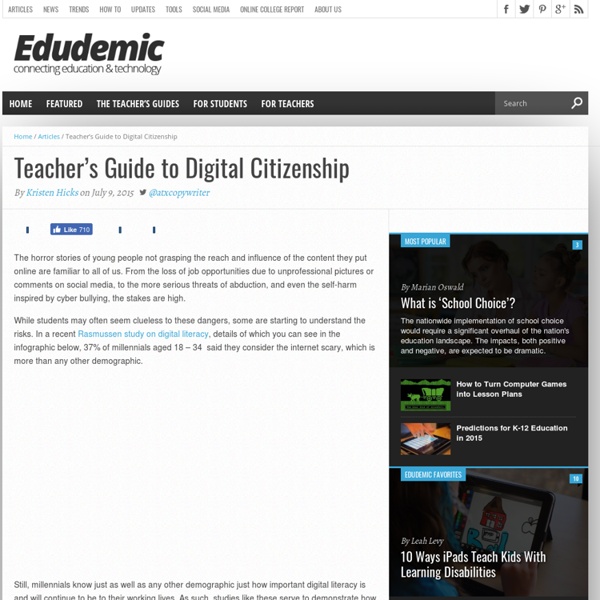Personalizable Infographic - Impact on Students
Thank you for participating in School Library Snapshot! Now more than ever, school librarians are critical to student success and it is equally critical that we showcase that value. The Library Snapshot is a project that originated with the New Jersey Library Association and New Jersey State Library in 2009. It was developed for public libraries and has been used across the country.
Helping Students Become Better Online Researchers
Your students are probably Internet authorities. When it comes to Instagram, Twitter, and YouTube, they might know far more than you. All of that time spent tweeting and chatting doesn’t necessarily translate to deep learning though. As students progress through school, online research skills become more important — for good reason.
Using Instructional Design to Implement Constructivist E-Learning - Learning Theory and Educational Technology
Heather Smith Boise State University Abstract Constructivist learning activities help create a sense of community necessary to student engagement in an e-learning environment.
Cyberbullying: What Teachers and Schools Can Do
They may not call it cyberbullying. Students may say they got "dissed" on Facebook or that someone flooded their phone with mean texts. Even little kids have been known to hack into Club Penguin to sabotage each other's games. While most of these incidents occur at home, the problems spill over to the classroom, making cyberbullying an issue teachers can't ignore.
Teaching Digital Citizenship in the Elementary Classroom
As elementary level teachers, we are charged not just with teaching academics, but teaching social skills as well. "Ignore bullies and tell an adult if you feel threatened," "Don't talk to strangers," "Treat people the way you want to be treated." You're probably familiar with phrases similar to these if you teach the younger grades. Young children are still learning the norms of social behavior and how to handle strangers. However, when was the last time you talked to your students about how to use good manners when leaving a comment on a blog post? When was the last time you and your students discussed what to do if someone is harassing you online or wants to meet you in person?
How Teens Can Fight Cyber Bullying
About ETR Community EdTechReview (ETR) is a community of and for everyone involved in education technology to connect and collaborate both online and offline to discover, learn, utilize and share about the best ways technology can improve learning, teaching, and leading in the 21st century. EdTechReview spreads awareness on education technology and its role in 21st century education through best research and practices of using technology in education, and by facilitating events, training, professional development, and consultation in its adoption and implementation.
Searching the Deep Web - Bates InfoTips
I recently developed a private workshop on how to find deep web resources on a specialized topic, and realized that the secret to finding information in the deep web is know that it’s a very different experience than searching the open web. While deep web content isn’t indexed by search engines, you can use search engines to find pointers, leads and links to deep web resources. Even more than with most “traditional” searches, looking for deep web content means thinking like a detective — looking for clues, using your peripheral vision to notice references or footnotes, and knowing when to step back and reassess. Following are some of the key approaches I recommend for finding deep web content on a particular topic.
How to Teach in an Age of Distraction (CHE)
At MIT, I teach a seminar on science, technology, and memoir. Enrollment is capped at 20 students. The atmosphere is intimate. We read memoirs by scientists, engineers, and designers, and then the students tell their own stories.Some of them have lived hardscrabble lives.



